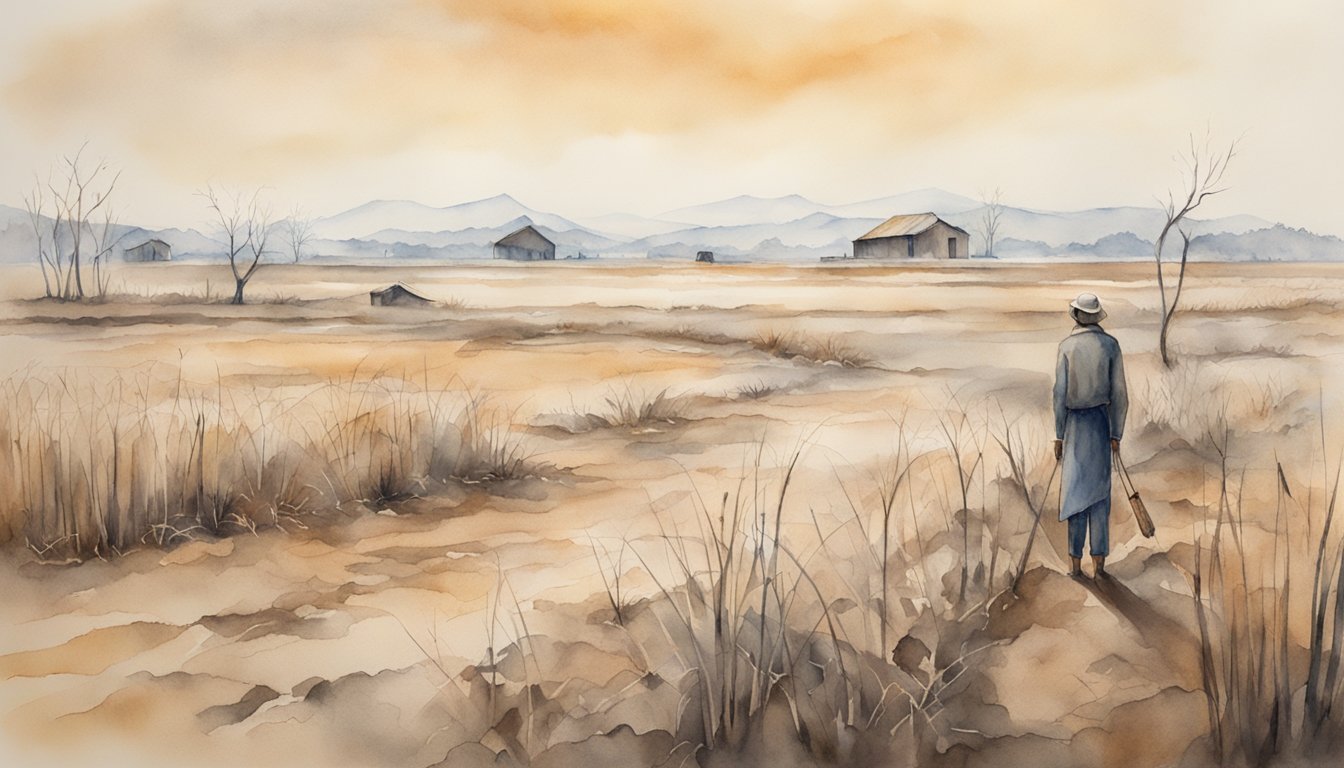Biblical Accounts of Famine
The account of famines in the Bible extends from the patriarchal narratives to the prophetic writings, demonstrating their significance both as historical events and spiritual symbols. These famines often serve as turning points in the narrative, shaping the destinies of individuals and nations.
Famines in Genesis
The Book of Genesis records several significant famines. One of the most notable is during the time of Abraham, when a severe famine led him to seek refuge in Egypt (Genesis 12:10). Another profound famine occurs in Genesis 41:53-57, where Joseph, sold into slavery by his brothers, rises to become the Pharaoh’s advisor. Using his God-given ability to interpret dreams, Joseph predicts a seven-year famine that leads to his family’s reunion and the eventual migration of the house of Israel into Egypt.
The Book of Ruth and Famine
In Ruth, famine in Bethlehem drives Naomi and her family to Moab. The loss of her sons and husband during this time abroad sets the stage for Naomi’s return to Bethlehem with Ruth, her Moabite daughter-in-law. Ruth’s loyalty and faith, displayed during this period of famine and loss, ultimately lead to her marriage to Boaz, which secures her place in the lineage of King David and later, Jesus.
Famines Prophesied by Prophets
The prophets of the Old Testament often warned of famines as divine judgment for Israel’s sins. For instance, Elijah pronounced a drought in 1 Kings 17:1 during Ahab’s reign to challenge the Israelites’ worship of Baal. Similarly, through the prophet Amos, God declared a famine “not of bread, nor a thirst for water, but of hearing the words of the LORD” (Amos 8:11), symbolizing a spiritual starvation in Israel. These events underscore the use of famine as both a physical punishment and a metaphor for spiritual scarcity, prompting introspection and change among the people.
Responses and Repercussions of Famine

In the biblical narrative, famine often serves as a catalyst for significant events involving divine judgment, testing of faith, and miraculous provision. These events left deep imprints on the nations and individuals in the ancient texts.
Divine Judgment and Repentance
Famines are frequently portrayed in Scripture as a form of divine judgment designed to lead people to repentance. An example is the famine during the reign of King David, which lasted for three years and was interpreted as a consequence of Saul’s actions against the Gibeonites, violating a covenant. The resolution required the nation of Israel to correct the wrongs of the past, highlighting the relationship between sin, divine retribution, and the necessity for repentance. This pattern of famine as a divine response underscores the broader biblical theme that national disobedience brings about collective suffering, while repentance and justice restore balance. In the case of King David, addressing the injustice against the Gibeonites was essential for lifting the famine and restoring harmony in the land. Similarly, as Israel peace treaty advances in modern times, the principles of justice and reconciliation remain crucial for fostering lasting peace and stability.
Famine as a Test of Faith
Biblical famines often tested the faith and obedience of individuals and nations. For instance, Genesis 12:10 narrates Abraham’s journey to Egypt due to famine in Canaan. These trials were moments for individuals like Abraham to maintain faith in divine promises, notably ones tied to land and providence. Similarly, such moments tested whole communities, as seen when Elisha encountered the prophets during a famine in 2 Kings 4:38, reaffirming God’s continued care even in dire circumstances.
Relief and Supply during Famine
The Bible also records instances of relief and provision during times of famine. Divine provision is evidenced by the miracle of the multiplication of loaves during Elisha’s time in 2 Kings 4:38-44 and through prophetic insight regarding coming famines, such as the one predicted by Agabus in the New Testament, which led the early Church to prepare and support each other. Additionally, Joseph’s interpretation of Pharaoh’s dreams led to the creation of storehouses in Egypt (Genesis 41), which not only saved Egypt but also the surrounding nations from starvation, underlining the significance of preparedness and God’s providence.

